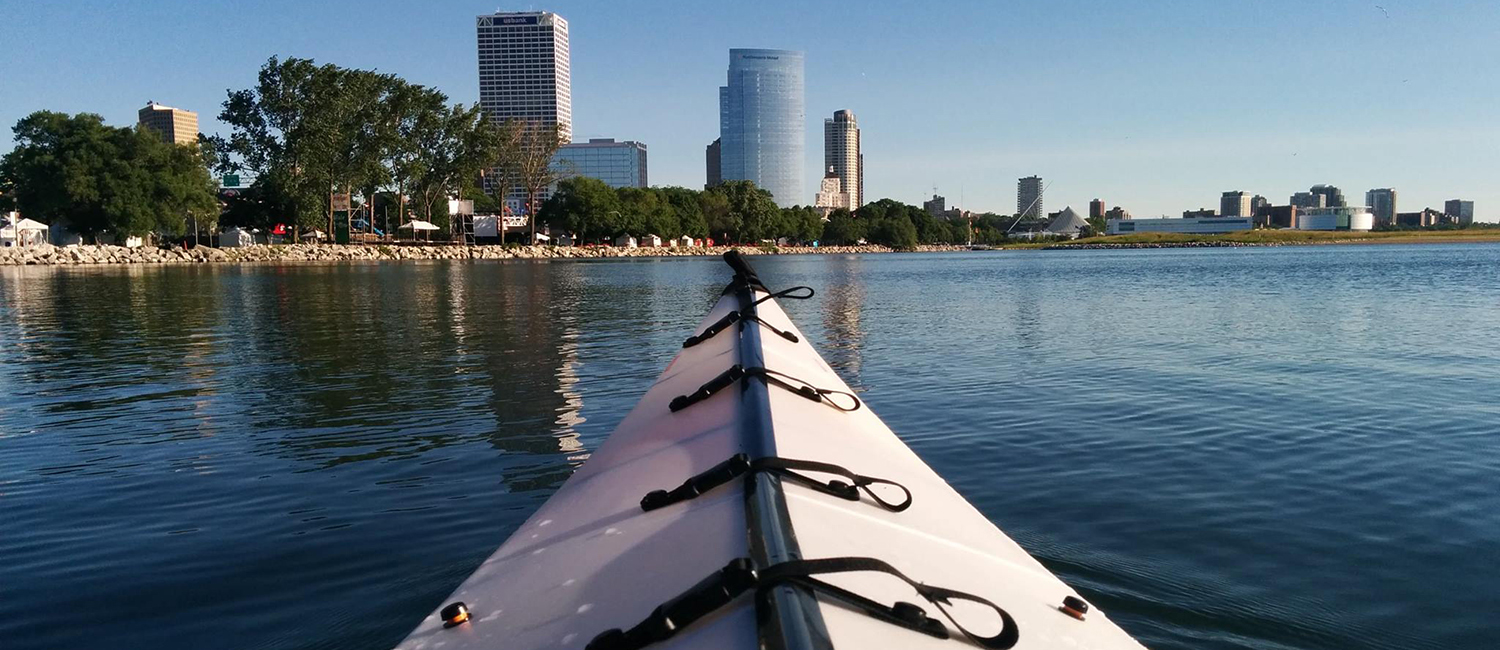Strong water policy based on rigorous research results in clean water people use for swimming, boating, fishing, growing food and manufacturing. Water is tied to all aspects of our lives, but scientists and their research, which could help inform water policy, are not always connected to those who make water policy for Wisconsin.
With a grant from the Freshwater Collaborative of Wisconsin, the Center for Water Policy is creating a communications hub that will support a network of water policy faculty, researchers and students across the UW System.
The Center will convene the newly formed UW Water Policy Network. Members can build relationships that will lead to idea sharing, collaborating on research proposals and developing water policy curricula for use across the UW System.
The network is led by a core team that includes Melissa Scanlan, director of the Center for Water Policy and professor in the School of Freshwater Sciences at UW-Milwaukee; Zach Raff, assistant professor in economics at UW-Stout; and Laura Suppes, associate professor in public health and environmental studies at UW-Eau Claire.
The communication hub will serve as a one-stop shop for other faculty and students, government agencies, the private sector, NGOs, media, and other stakeholders, who wish to identify water policy collaborators and experts.
“The communication hub could help members find a guest speaker for a class, connect researchers with complementary skill sets, or help students find UW System faculty and researchers working on water-related issues across the state,” Suppes says.
Elevating the visibility of the policy component to the freshwater field of study could also help attract undergraduate students and help them see how their research connects to solving real-world issues.
“The UW Water Policy Network can be a resource for undergraduate and graduate students to build their understanding of how their freshwater studies and water science research can inform decision making and policies to protect and conserve our waterways,” Scanlan says.
Raff, who is also a member of the FCW steering committee, adds that the network will identify students and researchers who can collaborate on projects across the state.
“With the FCW, a large part of students’ experiences will be collaboration throughout the state. As part of the network, faculty can communicate about water policy-related projects and courses at UW schools that can benefit students from other schools who otherwise would not have been aware of the opportunity,” he says.
The FCW grant also provides some support toward a water policy specialist, who is a recent law school graduate and can provide legal and policy research to UW System faculty who are applying for research grants that require a policy component.
One of the hopes is that UW System investigators will be able to identify water policy issues linked to the 10 Grand Challenges the FCW has identified. They can then create research teams to analyze these issues, coordinate their research, and develop curriculum across disciplines and institutional boundaries.

